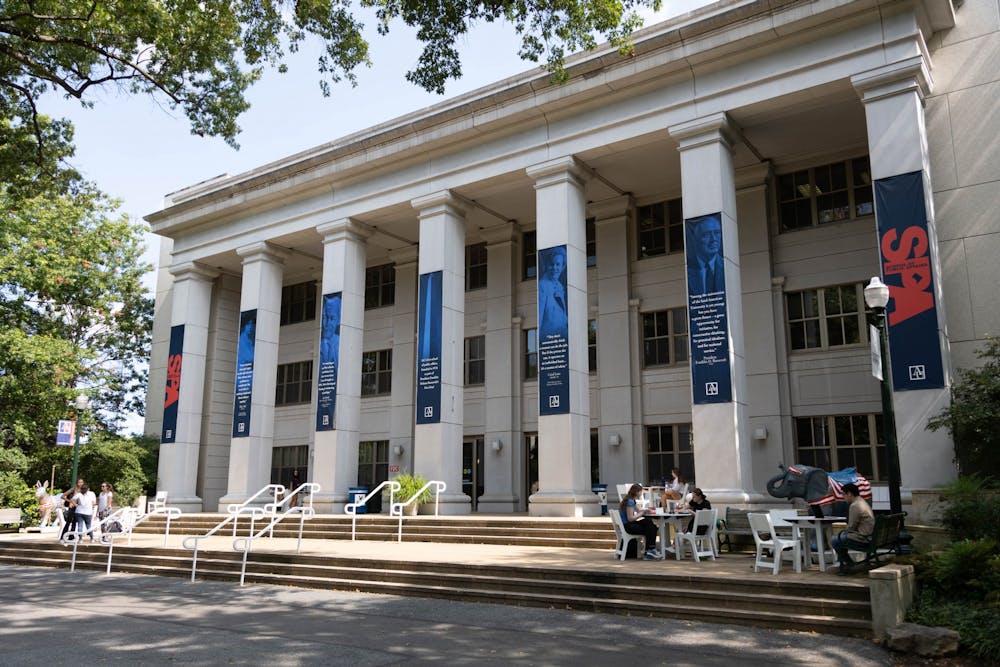American University Pride and AU College Democrats hosted a panel on Sept. 22 to discuss the recent rise in anti-trans legislation and how students can help tackle this growing issue.
The panel featured several trans and nonbinary speakers from the two organizations who explained the numerous transphobic laws that have been introduced in the past few years and the danger they pose to trans individuals.
“The biggest context for all of this is the criminalizing of healthcare for trans and nonbinary youth,” said School of International Service sophomore Sheldon Lucas-McHenry, who moderated the event.
This criminalization includes “removing or limiting their access to important spaces like bathrooms, restricting transgender youth in sports, permitting religiously motivated discrimination and complicating the process for obtaining healthcare with hormones,” among other things, Lucas-McHenry said.
The panel also mentioned the lack of infrastructure in place to protect trans people, a problem compounded by delayed action from the government to address the topic. This slow response is one of many factors that have contributed to the emergence of recent anti-trans laws like The Fairness in Women’s Sports Act, which would ban trans women in Arkansas from participating in sports because of their alleged advantage over cisgender athletes.
While reviewing these bills, the panel also highlighted the growing number of pro-trans laws and acts of solidarity that have worked to curtail the conservative legislation. One of the most impactful has been The Equality Act, which prohibits discrimination based on sex, sexual orientation or gender identity.
“We’ve seen how athletes, businesses, and advocacy groups have opposed these anti-transgender bills,” Lucas-McHenry said. “So, we do see how a lot of these institutions throughout the country, even at the national level, are condemning these types of bills.”
Eden Greenstein, a sophomore in the School of Public Affairs and the president of AU’s Disabled Student Union, further emphasized the importance of encouraging younger generations to wield their voting power to elect politicians that can create positive changes for marginalized groups.
“Mobilizing teenagers has been the political battle since the beginning of time,” Greenstein said. “There is something to be said for what Gen Z has experienced, what Gen Z has grown up as, that I think legitimately gives us the political power to be making these changes, but we just have to get out there and wait on adults. We have to put people on the ballot.”
Zelda Darga, a sophomore in SPA, said that opening a space for traditionally disenfranchised or overlooked demographics is important.
“Being able to give a platform to marginalized voices and being able to give information to those that might be unaware, and being able to give a voice to the voiceless, that's something that’s very important,” Darga said.
For Jeremy Ward, a senior in SPA, holding events like these represent an integral step for spotlighting the various communities that exist within AU’s campus.
“From a university perspective, I think with any community that’s on campus, we should highlight resources that can positively impact them,” Ward said. “I think it’s just important in general that with any community, you’re adequately highlighting those issues and being a positive influence.”




